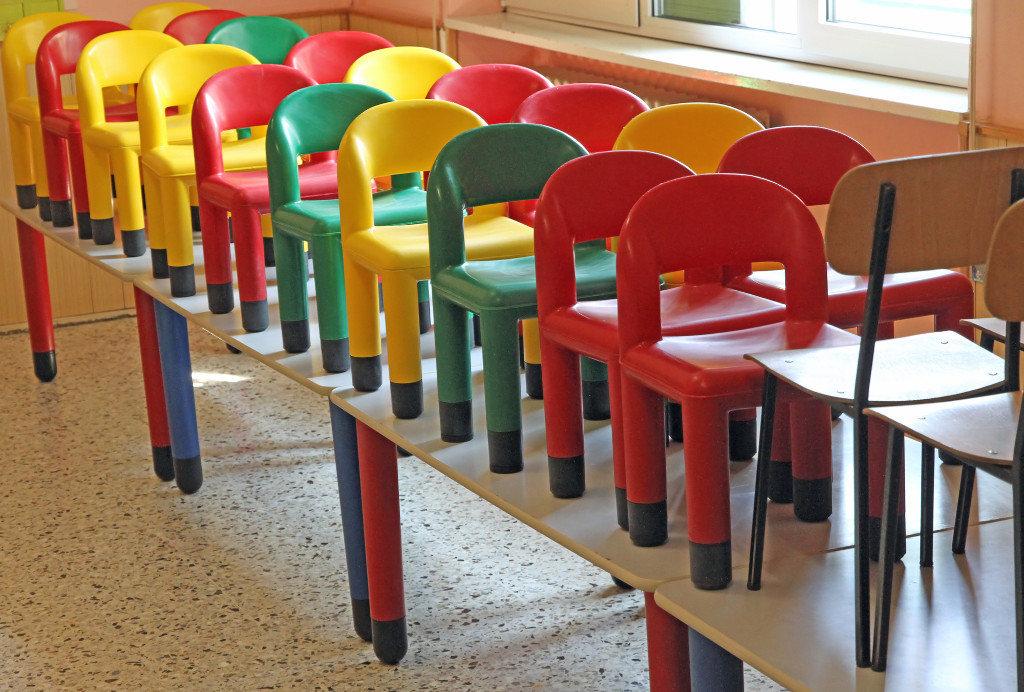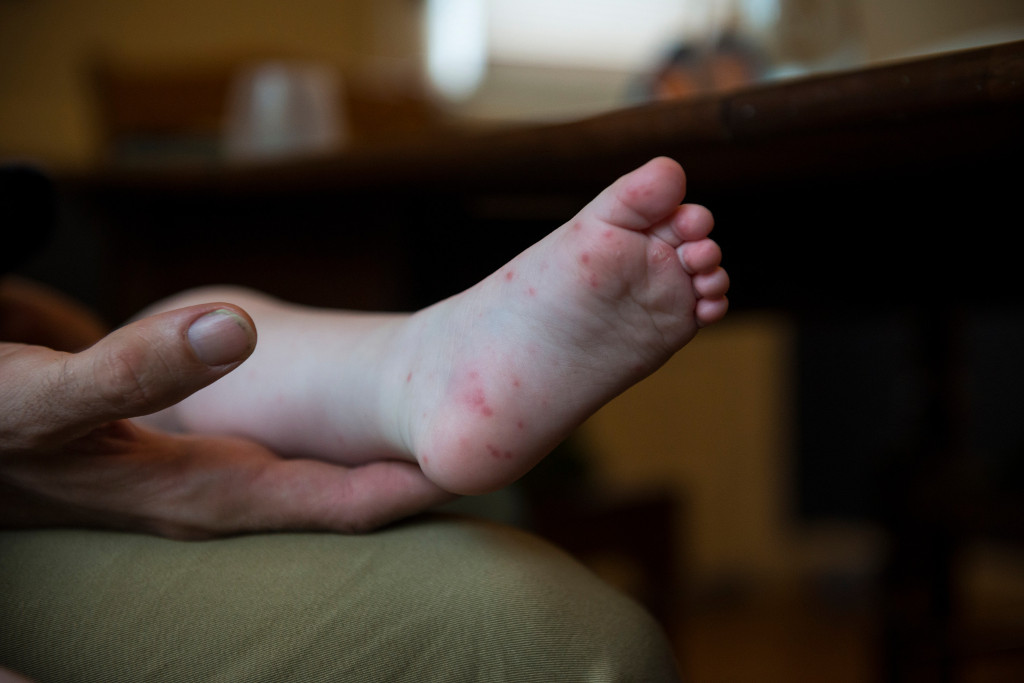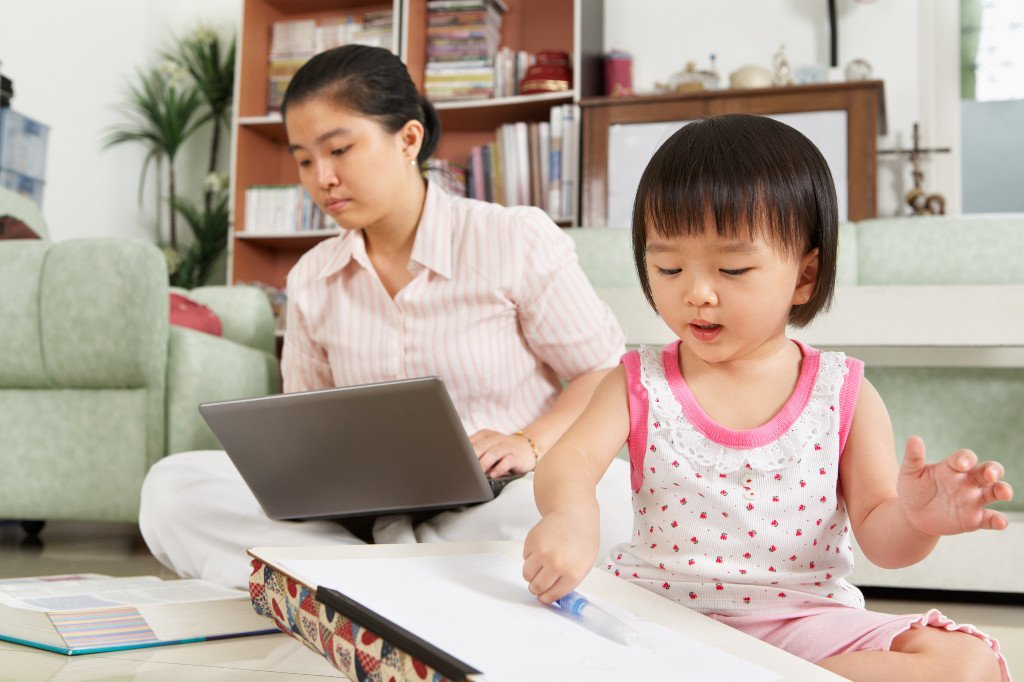SingaporeMotherhood | Baby & Toddler
March 2017
What to Do If Your Child’s School Has an HFMD Outbreak

Parents, don’t let your guard down. The dreaded HFMD (Hand, Foot and Mouth Disease) is poised to invade your children’s childcare centre or kindergarten once again.
Trying to guess whether it will be rainy or sunny on any given day in Singapore is usually a hit-and-miss affair. Yet certain seasonal events are pretty predictable, year after year. Much like fireworks every National Day, diseases like dengue fever and HFMD are endemic to Singapore. This means that it is present all year round and we can expect outbreaks to occur regularly.
There are active HFMD clusters happening right now, in fact. As of 15 March 2017, outbreaks are ongoing at six childcare centres and two kindergartens. They aren’t limited to any particular area either – from Pasir Ris in the east to Clementi in the west! The week of 5-11 March 2017 alone saw 943 cases reported. Since the beginning of the year, there have been a whopping 6673 cases! This is actually 56 more than in the same 10 weeks last year.
[banner][/banner]
To Close or Not to Close

To keep parents informed, the Ministry of Health (MOH) provides weekly updates on their website regarding the HFMD situation in childcare centres and kindergartens across the island. What about primary schools, you may wonder. Well, while people of any age can get HFMD, young kids below the age of five years are the most susceptible. Hence majority of outbreaks occur in childcare centres and kindergartens.
The MOH update is divided into two categories:
Childcare centres and kindergartens with active clusters of prolonged transmission
If any centre has more than 10 cases or more than 13 per cent of their enrolment infected, as well as a transmission period of more than 16 days, they will be listed in this category. This is so that if your child is enrolled in one of these, you can then be on the lookout for symptoms in your child.
While these centres can remain open, some may consider voluntary closure if they feel there is a need to do so. Typically, the centre will consult with parents to get consent. You may also, at your own discretion, choose to keep your child home for a few days for your own peace of mind.
Childcare centres and kindergartens that require mandatory closure
If any centre has more than 16 cases or more than 23 per cent of their enrolment infected, as well as a transmission period of more than 24 days, they will be assessed for closure. Once confirmed, they will be required to close for a period of 10 days. In this case, parents will be informed through the centre.
As the whole idea of a closure is to break the chain of transmission completely, do not place your child in another child care centre. She has already been exposed to HFMD and while she may not display any symptoms now, she may develop them later. This would mean risking infecting other kids in the new centre. If both parents are working and there is no one to look after your child at home, consider hiring a babysitter for the time being.
Going to School

Even if your child’s childcare centre or kindergarten is not facing a HFMD outbreak or mandatory closure, it is still important to stay vigilant. Follow these four steps every day before sending your little ones off to school:
- Take your child’s temperature. Does she have a fever?
- Ask your child to say “Ahhh”, while you shine a torch light into her mouth. Are there any ulcers on the tongue, inner walls of the cheeks and on the lips?
- Get your child to hold out her hands and show you both sides of her hands. Are there any small pimple-like bumps or tiny fluid-filled blisters?
- Before putting shoes on, check both the top part of the feet and the soles. Are there any bumps and blisters there?
If the answer to any of the above is yes, don’t let your child go off to school. Take her to your family doctor instead. Even if you aren’t sure, check with the doctor – it’s better to be safe than sorry!
Good Hygiene Habits
If your child is healthy and fit for school, teach her the following hygiene habits:
- Wash hands with soap and water before and after eating, and after going to the toilet.
- Do not share food, drinks, plates, cups, water bottles, forks and spoons while eating.
- The same goes for towels, toothbrushes, clothes or any other personal items.
- Do not put fingers, toys or any such object into the mouth.
- Cover the nose and mouth with a tissue when coughing or sneezing. Throw used tissues into the dustbin immediately, and wash hands with soap and water right after.
(See also: Teach Your Child Proper Handwashing Techniques)
If your child’s teacher calls to inform you that she isn’t feeling well and to take her home, please do so right away. Last year, there were cases where parents sent their sick children to centres or delayed picking them up, possibly adding fuel to the epidemic fire!
Staying at Home

If your child is not going to childcare or kindergarten due to a mandatory or voluntary closure, or because there’s an outbreak in her school, it is extremely important that she stays home. Again, the whole idea is to break the transmission of HFMD, not spread it around by going out. The virus may still be in incubation mode, or she may not be infected at all, but it’s really best not to take any risks.
So what’s the best way to protect your child and yourself from getting HFMD in the first place? Good personal hygiene, of course! And it’s not just about washing hands. Most mums think nothing of finishing up their child’s unfinished food or water, for instance. Given how easy it is for viruses to be transmitted this way, it’s probably best to avoid that habit altogether.
You’ve taught your child how to be hygienic at school, now make sure that everyone practises those good habits at home as well. After all, young children learn best from mimicking adults – you can’t expect your child to practise those habits if you don’t do so yourself!
Need ideas to keep your child from climbing the walls at home? Check out this list of fun and inexpensive activities you can do at home.
Avoid Going Out
If it’s absolutely necessary to take your child out, do avoid crowded places as much as possible. Going to indoor play gyms, outdoor playgrounds or water parks is definitely a no-no. It’s quite possible for those places to be the source of where outbreaks begin. In fact, earlier this year, the management at Waterway Point in Punggol voluntarily closed two popular play areas as a precautionary measure, as HFMD had broken out at a preschool located in the mall.
If, despite all your best efforts, your child does fall prey to to dreaded disease, don’t worry. Take her to the doctor at once for an examination. If the diagnosis is confirmed, click here to find out what you need to know to get her through the dreaded infection as painlessly as possible.
All content from this article, including images, cannot be reproduced without credits or written permission from SingaporeMotherhood.
Follow us on Facebook, Instagram, and Telegram for the latest article and promotion updates.





